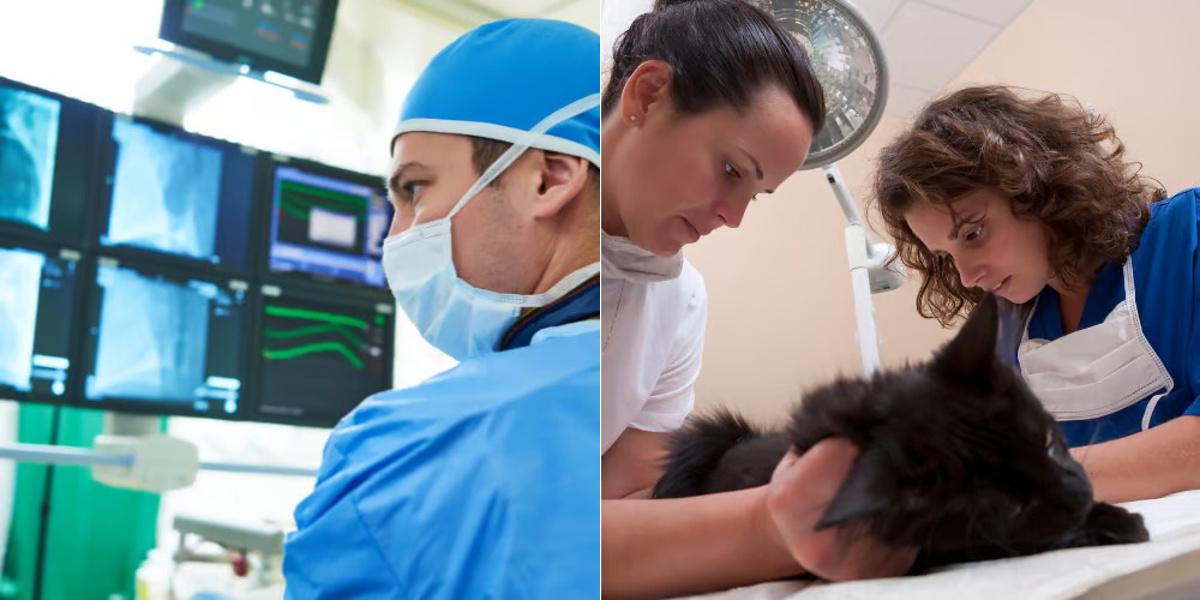Radiology Technician vs Veterinary Assistant

Key Points:
- Radiology Technicians operate medical imaging equipment; Veterinary Assistants provide basic care for animals.
- Radiology Technicians typically earn higher salaries than Veterinary Assistants.
- Both Radiology Technicians and Veterinary Assistants have steady job growth.
- Radiology Technicians require formal education, while Veterinary Assistants may receive on-the-job training or complete a certificate program.
- Radiology Technician training is generally more extensive and expensive than Veterinary Assistant training.
Radiology technicians and veterinary assistants play important roles in the healthcare industry. They both contribute to the well-being of patients, but in different ways. Radiology technicians focus on diagnostic imaging procedures, while veterinary assistants provide support to veterinarians in animal clinics and hospitals.
Radiology Technician vs Veterinary Assistant: Career Outlook and Salary
Career Outlook:
- The demand for radiology technicians is expected to grow at a faster-than-average rate in the coming years, driven by an aging population and advances in medical imaging technology.
- The job outlook for veterinary assistants is also positive, with employment opportunities projected to increase as more people seek veterinary care for their pets and other animals.
Salary:
- The median annual wage for radiology technicians was $62,280 in May 2020, according to the Bureau of Labor Statistics.
- Veterinary assistants, on the other hand, earned a median annual wage of $28,590 during the same period.
- It's important to note that salaries can vary depending on factors such as location, experience, and level of education.
Final Thoughts
Choosing between a career as a radiology technician or a veterinary assistant ultimately depends on your interests, skills, and career goals. Both professions offer unique opportunities to make a positive impact in the healthcare field, whether it's helping humans or animals. Consider your personal preferences, educational requirements, and long-term career prospects when making your decision. Whichever path you choose, remember that dedication, compassion, and a commitment to lifelong learning are essential for success in any healthcare profession.
Dreambound's programs are available in different locations. Explore the following blogs for comprehensive details on these two vocations, including their requirements and guidelines on joining:

Sunshine is a member of the School Growth team at Dreambound, where she assists students and schools with their billing and onboarding needs. She is a licensed mechanical engineer. Outside of work, she enjoys road trips with her family, discovering cozy cafes, and exploring her love for art.



